Libya
Libyan Red Crescent recovery teams on Thursday retrieved the bodies of four people from a beach near Sabratha, 70km (43 miles) west of Tripoli, as desperate migrants continue to attempt deadly sea crossings to enter Europe.
The head of the recovery team, Mohamed Al-Manobi, said the bodies that had washed up onto the shore were initially reported to police on Tuesday and were examined by prosecutors and a forensic doctor before his team were called in.
Al-Manobi added that the recovery team has been carrying out recovery operations since 2014, despite working in "many difficult circumstances".
The team works without health insurance is made up of young people who carry out the work voluntarily, he explained.
The United Nations' migration agency said 75 migrants drowned in the Mediterranean Sea north of Libya earlier this week as they attempted to reach Italy by boat.
The International Organization for Migration (IOM) said that 15 survivors were rescued by fishermen and brought to the port of Zuwara in northwestern Libya on Saturday.
Each year, thousands of migrants and refugees from Africa, the Middle East and South Asia attempt the deadly Mediterranean Sea crossing to Europe on overcrowded and often unseaworthy boats.
More than 1,300 men, women and children have died so far in 2021 trying to cross the Central Mediterranean from Libya and Tunisia to Italy and Malta, according to IOM.
Human rights groups often criticize European governments for not doing more to rescue migrants trying to reach the continent on unseaworthy vessels.
European rescue efforts led by Italy in the central Mediterranean were scaled back a few years ago and more emphasis was placed on training and equipping the Libyan coast guard to intercept migrant boats before they can reach European waters.
Critics say Europe is turning a blind eye to human rights abuses in Libyan detention centres for migrants.




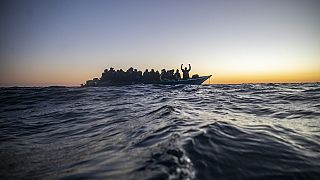
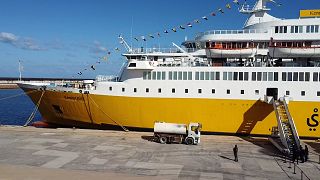
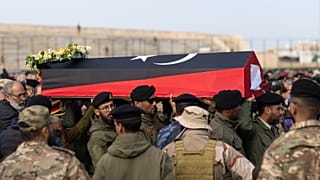
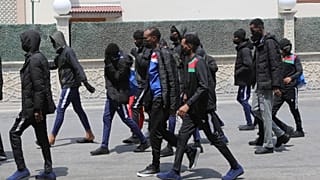

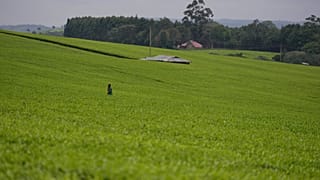

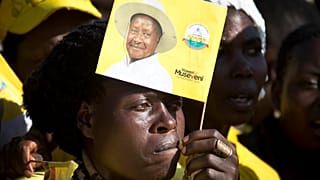
00:53
Gambian authorities intercept 780 migrants trying to reach Europe
01:56
Tunisia: Swimmers celebrate New Year with plunge in cold sea
00:32
Greece rescues 545 migrants off Crete after distress call
00:54
Spanish police evict hundreds of mostly illegal migrants living in a squat
Go to video
17 migrants drown in Crete sea crossing
02:03
Mayor of Minneapolis rejects Donald Trump's comments against Somalis